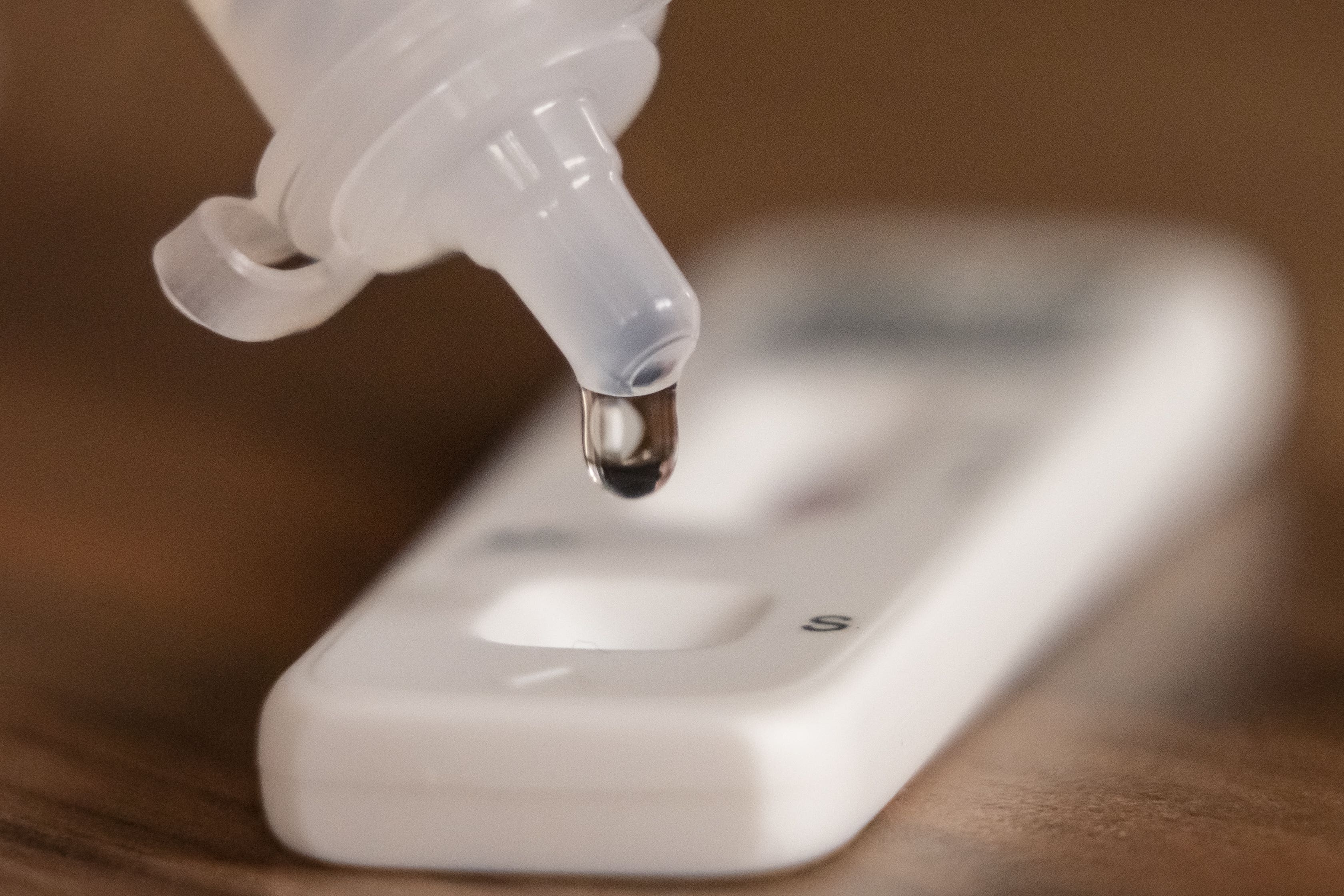UK Covid hospitalisations increase following emergence of new variant
The rise is thought to be due to waning immunity and a new group of Covid variants collectively referred to as FLiRT
Your support helps us to tell the story
From reproductive rights to climate change to Big Tech, The Independent is on the ground when the story is developing. Whether it's investigating the financials of Elon Musk's pro-Trump PAC or producing our latest documentary, 'The A Word', which shines a light on the American women fighting for reproductive rights, we know how important it is to parse out the facts from the messaging.
At such a critical moment in US history, we need reporters on the ground. Your donation allows us to keep sending journalists to speak to both sides of the story.
The Independent is trusted by Americans across the entire political spectrum. And unlike many other quality news outlets, we choose not to lock Americans out of our reporting and analysis with paywalls. We believe quality journalism should be available to everyone, paid for by those who can afford it.
Your support makes all the difference.Experts have warned that Covid “hasn’t gone away” after an uptick in infections and hospitalisations that is thought to have been caused by new variants of the virus.
A group of Covid mutations has recently emerged and is collectively referred to as FLiRT.
According to the UK Health Security Agency (UKHSA), Covid hospital admissions increased by 24 per cent in the week to Sunday, with a rate of 3.31 per 100,000 people compared with 2.67 per 100,000 in the previous week.
Professor Lawrence Young, a virologist at Warwick University, said the figures should serve as a “wake-up call” to those who think the virus has gone away.
“The virus hasn’t gone away and is certainly not a seasonal infection,” he told the i newspaper. “A combination of new, more infectious virus variants and waning immunity is very likely contributing to these increased levels of infection. The hope is that this will not result in a big wave of infection, but we need to keep a close watch.”

Separate figures from the UKHSA show that 2,053 cases of Covid were recorded in the week to 12 June. This was an increase of 148 cases, or 7 per cent, on the previous seven-day period.
Hospitalisations were highest in those aged 85 years and over. Covid ICU admissions were “very low” but increased slightly to 0.12 per 100,000.
The agency said the term FLiRT was inspired by the names of the mutations in the genetic code of the variants, which descend from JN.1 with variant BA.2.86 as a parent.
According to the UKHSA, three strings of the FLiRT variant called KP.1.1, KP.2 and KP.3 were responsible for 40 per cent of all Covid cases in the UK in April this year.
KP.2 drove a spike in cases over the spring, and KP.3 appears to be fuelling the beginning of a summer surge.
A spokesperson said: “UKHSA continues to monitor data relating to new variants both in the UK and internationally, assessing their severity and the ongoing effectiveness of vaccines. There is no change to the wider public health advice at this time.”
Join our commenting forum
Join thought-provoking conversations, follow other Independent readers and see their replies
Comments